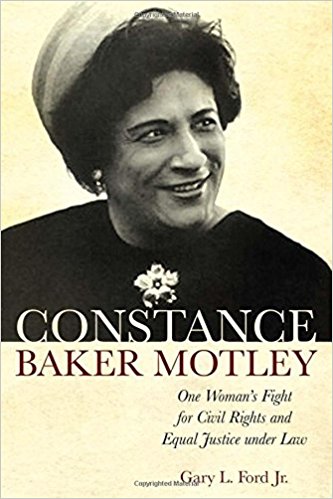December 6, 2017
Opening Good Books at the Close of the Year
Urban Matters offers our annual list of some of the thought-provoking works produced during the past 12 months by members of The New School community.
We’ll Always Have Casablanca (W.W. Norton & Company).
By Noah Isenberg, professor of culture and media and director of screen studies at Eugene Lang College.
On the occasion of its 75th anniversary, Isenberg describes the history and extraordinary staying power of one of the most memorable wartime dramas ever filmed – a movie that challenged America to confront fascism and racial persecution.
Uneasy Street: The Anxieties of Affluence (Princeton University Press).
By Rachel Sherman, professor of sociology at The New School for Social Research.
Real Housewives doesn’t tell the whole story; don’t assume the wealthy are “un-conflicted” about their advantages. Sherman’s in-depth interviews with highly affluent New Yorkers found that not all are keen to flaunt the price tags of their purchases or extent of their privileges. To avoid any stigma arising from their status, many try hard to be “good” rich people.
Mean Men: The Perversion of America’s Self-Made Man (Voussoir Press).
By Mark Lipton, professor of management at the Milano School of International Affairs, Management, and Urban Policy.
A long-time management advisor to both start-ups and Fortune 500 firms, Lipton dissects a psychology that dominates too many boardrooms (and, perhaps, Presidential tweets), and suggests a more humanistic approach to leadership.
Constance Baker Motley: One Woman’s Fight for Civil Rights and Equal Justice Under Law (University of Alabama Press).
By Gary L. Ford, Jr., 2006 alumnus of The New School’s Master of Fine Arts (MFA) creative writing program.
Ford tells the often-overlooked life story of an attorney who long was at the forefront of key civil rights battles and who, in 1966, became the first Black woman to become a Federal court judge.
What Remains: Everyday Encounters with the Socialist Past in Germany (Columbia University Press).
By Jonathan Bach, professor of global studies.
Bach examines East Germany following the fall of the Berlin Wall and asks: What happens when an entire modern state's material culture becomes abruptly obsolete? How do ordinary people encounter what remains from a vanished past?
Second Nature (Marsh Hawk Press).
By Patricia Carlin, associate professor of writing and literature.
In the words of reviewer and poet Tony Leuzzi, “Complex, precise and never sentimental, Carlin’s poems resist definite closure. Instead, like magic tree sculptures, they branch and leaf towards their instinctive shapes, then continue climbing the air long after their edges have been reached.”
What’s Race Got to Do with It? How Current School Reform Policy Maintains Racial and Economic Inequality (Peter Lang Inc., publisher).
Co-edited by Bree Picower and Edwin Mayorga, it includes a chapter by Ujju Aggarwal, assistant professor of anthropology and experiential learning at The New School for Public Engagement. The authors investigate the role of race in school closings, high-stakes testing, and charter school proliferation, and present stories of grassroots resistance to such policies.
The Matrimonial Flirtations of Emma Kaulfield (Arcade Publishing).
By Anna Fishbeyn, MFA 2004.
Here’s a comedy of conflicting manners, values, and customs, set against the backdrop of a contemporary Russian immigrant family's struggle to assimilate, their newfound love of capitalism, and their insistent push for their children's tangible success.
Millennium Development Goals: Ideas, Interests, and Influence (Routledge).
By Sakiko Fukuda-Parr, professor of international affairs.
A critical evaluation of the origins, trajectory, and influence of goals for improving health, education, environmental sustainability, and other areas of life in developing nations set at the UN’s historic Millennium Summit in 2000.
All Back Full (Dzanc Books).
By Robert Lopez, MFA 1999.
A genre-defying tour through one day in a marriage, exploring what we say to each other when we say nothing, and the ways we speak to each other without words. In her review, novelist Deb Olin Unferth calls All Back Full “funny, fast-paced and weird,” with “a playfulness that makes it delightful, and a thoughtfulness that makes it important.”
Humanitarianism, War, and Politics: Solferino to Syria and Beyond (Rowman & Littlefield).
By Peter Hoffman, professor of international affairs (with co-author Thomas G. Weiss).
Hoffman and his co-author analyze the accomplishments and shortcomings of the organizations and policies designed to lessen human suffering produced by armed conflict around the globe.
The Best American Poetry 2017 (Scribner).
Edited by New School creative writing professor David Lehman (with guest editor former US Poet Laureate Natasha Trethewey).
This is the latest edition of what the Chicago Tribune has called “a ‘best’ anthology that really lives up to its title.”
Sunshine State (HarperCollins).
By Sarah Gerard, MFA 2012.
In what National Public Radio described as her “penetrating and deeply felt debut collection of essays,” Gerard explores her formative years in Florida.
North Haven (Amazon Publishing).
By Sarah Moriarity, MFA 2003.
Moriarity sets her first novel on an island in Maine, where four siblings gather on the 4th of July – for the first time without their parents. What happens when a potential buyer makes a substantial offer for the family’s beloved but deteriorating summer place?
















